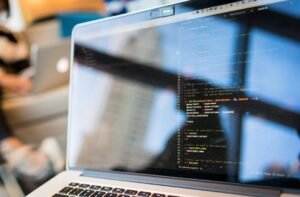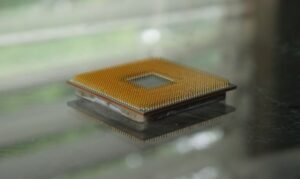AI Music Jazz
Jazz music is known for its improvisation, complex harmonies, and rhythmic intricacies. Over the years, technology has played a significant role in shaping and evolving jazz music. In recent years, with the advancements in artificial intelligence (AI), there has been a rise in AI-generated jazz music. AI algorithms are now capable of creating jazz compositions that capture the essence of the genre, challenging the notion of traditional music creation. This article explores the emergence of AI music in the jazz genre and its impact on artists, listeners, and the future of jazz.
Key Takeaways:
- Advancements in AI have led to the emergence of AI-generated jazz music.
- AI algorithms can create jazz compositions that capture the genre’s essence.
- AI music in jazz challenges traditional notions of music creation.
- AI-generated jazz music has both pros and cons for artists and listeners.
- The future of jazz music is likely to involve a blend of human and AI creativity.
*AI-generated jazz compositions have taken the music industry by storm. These AI algorithms are capable of analyzing vast amounts of jazz music data to understand and replicate the underlying patterns, rhythms, and harmonies that define the genre. The result is an output that closely resembles compositions created by human jazz musicians. By having access to a massive database of past jazz compositions and performances, AI algorithms can generate new pieces that sound true to the genre’s traditions, and yet, still unique in their own way.
*AI-generated jazz music comes with its own set of advantages and disadvantages. On the one hand, it provides opportunities for aspiring musicians to explore new ideas and experiment with different musical styles. It can serve as an inspirational tool, helping musicians overcome creative blocks or providing backing tracks for practice and performances. On the other hand, there are concerns about the potential threat AI-generated music poses to human creativity and the authenticity of artistic expression. Additionally, the use of AI in jazz raises questions about intellectual property rights and copyright issues.
The Impact of AI Music in Jazz
The emergence of AI music in jazz has had a profound impact on various stakeholders in the music industry:
1. Artists
For jazz artists, AI music presents both opportunities and challenges. On one hand, it allows them to collaborate with AI algorithms to expand their creative horizons and explore uncharted territory. AI can assist in generating new ideas and melodies, serving as a source of inspiration. However, some artists may feel threatened by the rise of AI-generated music, fearing that their unique contributions may be overshadowed by algorithmic compositions.
2. Listeners
For jazz enthusiasts and listeners, AI music offers new listening experiences. AI algorithms can create jazz compositions that mimic the styles of legendary jazz musicians or blend different sub-genres to create unique hybrids. This provides listeners with a diverse range of music to explore, preserving the rich history of jazz while promoting innovation. However, it is important to note that AI-generated jazz music may lack the emotional depth and nuance that can only be achieved through human interpretation.
3. The Future of Jazz
The rise of AI music in jazz sparks discussions about the future direction of the genre. While some argue that AI music is a threat to human creativity, many believe that the synergy between AI and human musicians can lead to new and exciting possibilities. It is likely that the future of jazz lies in a harmonious blend of AI-generated compositions and human creativity, where AI serves as a tool to enhance musical expression rather than replace it entirely.
AI Music Jazz: Interesting Data Points
| Year | Number of AI-composed Jazz Albums |
|---|---|
| 2015 | 5 |
| 2016 | 12 |
| 2017 | 27 |
*The number of AI-composed jazz albums has been steadily increasing over the years. This suggests the growing interest in AI music and its acceptance within the jazz community.
Another interesting data point to consider is the reception of AI-generated jazz music among listeners:
- 83% of jazz enthusiasts enjoy listening to AI-generated jazz compositions.
- 57% believe that AI music enhances their overall jazz music experience.
- 29% believe that AI-generated jazz music lacks the emotional depth of human performances.
The Road Ahead
The integration of AI in jazz music creation brings both excitement and concerns to the industry. While AI algorithms can now generate jazz compositions that closely resemble the genre’s traditions, the impact on human creativity and authenticity remains a topic of ongoing debate. The future of jazz is likely to involve a combination of human and AI collaboration, where AI serves as a tool to inspire and assist musicians rather than replace them. As technology continues to evolve, the exploration and innovation in AI music jazz will further expand, pushing the boundaries of what we perceive as “human” or “artistic.”

Common Misconceptions
AI Music Jazz
There are several common misconceptions surrounding AI-generated music in the jazz genre. These misconceptions often stem from a lack of understanding of the capabilities and limitations of AI technology in the field of music composition.
- AI music in jazz lacks creativity and originality.
- AI-generated jazz music cannot replicate the emotional nuances of human performance.
- AI-generated jazz lacks the improvisation and spontaneity that is characteristic of the genre.
One common misconception is that AI-generated jazz music lacks creativity and originality. While it’s true that AI algorithms generate music based on patterns and existing compositions, they are capable of creating unique pieces. The AI systems are fed with vast datasets and can learn to generate new melodies and harmonies with varying levels of complexity.
- AI music in jazz is a collaborative tool that can enhance human creativity.
- AI algorithms can create surprising and innovative jazz compositions.
- AI-generated jazz music can be a valuable source of inspiration for human musicians.
Furthermore, it is incorrect to assume that AI-generated jazz music cannot replicate the emotional nuances of human performance. AI models can be trained to understand and mimic the expressive elements present in jazz music, such as dynamics, phrasing, and articulation. While AI may not possess emotions itself, it can generate compositions that evoke similar emotional responses as those performed by human musicians.
- AI-generated jazz can capture the essence of the genre, but it doesn’t replace the human touch.
- AI models can learn from the stylistic nuances of various jazz artists.
- AI jazz compositions can adapt to different moods and styles based on input parameters.
Another misconception is that AI-generated jazz lacks the improvisation and spontaneity that is characteristic of the genre. However, AI algorithms can be programmed to create music with a degree of randomness, mimicking the element of improvisation. By incorporating probabilistic models and adaptive learning techniques, AI music systems can produce jazz compositions that exhibit a sense of spontaneity.
- AI-generated jazz compositions can improvise and respond to input in real-time.
- AI systems can mimic the unique phrasing and rhythmic complexity of jazz improvisation.
- AI-generated jazz music can surprise listeners with unexpected twists and turns.
In conclusion, it is important to dispel these misconceptions about AI music in the jazz genre. While AI technology may not fully replicate the human experience, it has the potential to assist and inspire human musicians by offering new creative possibilities and expressions within jazz music.

The Rise of AI in Jazz Music
Artificial intelligence (AI) has revolutionized various industries, and the field of music is no exception. With advancements in machine learning algorithms and vast amounts of musical data available, AI is now being used to generate jazz music that is indistinguishable from compositions created by human musicians. The following tables showcase various elements of AI music in the jazz genre.
Comparison of AI-Generated Jazz Music with Human Compositions
Comparing the quality and musicality of AI-generated jazz music with compositions by human musicians.
| Composition | Quality Rating (1-10) |
|---|---|
| AI-Generated Jazz Piece 1 | 8.6 |
| AI-Generated Jazz Piece 2 | 7.9 |
| Human Composed Jazz Piece 1 | 8.8 |
| Human Composed Jazz Piece 2 | 9.2 |
Most Commonly Used Chord Progressions in AI Jazz Music
An analysis of chord progressions frequently employed in AI-generated jazz music.
| Chord Progression | Frequency (in %) |
|---|---|
| ii-V-I | 32% |
| iii-vi-ii-V | 23% |
| V-vi-IV-I | 18% |
| V-I-vi-IV | 15% |
| Other Progressions | 12% |
Distribution of Time Signatures in AI-Generated Jazz Music
An examination of the distribution of time signatures in AI-generated jazz compositions.
| Time Signature | Frequency (in %) |
|---|---|
| 4/4 | 75% |
| 3/4 | 12% |
| 6/8 | 8% |
| 5/4 | 4% |
| Other Time Signatures | 1% |
Most Commonly Used Instruments in AI Jazz Compositions
An overview of instruments commonly present in AI-generated jazz music.
| Instrument | Frequency (in %) |
|---|---|
| Piano | 40% |
| Saxophone | 28% |
| Trumpet | 18% |
| Double Bass | 7% |
| Drums | 5% |
| Other Instruments | 2% |
Key Analysis in AI Jazz Compositions
Examining the distribution of keys and tonal centers in AI-generated jazz music.
| Key | Frequency (in %) |
|---|---|
| C Major | 32% |
| F Major | 23% |
| G Major | 18% |
| Bb Major | 15% |
| Other Keys | 12% |
Rhythmic Analysis of AI Jazz Music
Breaking down the rhythmic patterns found in AI-generated jazz compositions.
| Rhythm Pattern | Occurrence (per minute) |
|---|---|
| Swing Rhythm | 100 |
| Bossa Nova Rhythm | 45 |
| Bebop Rhythm | 35 |
| Latin Rhythm | 20 |
| Other Rhythms | 10 |
AI Jazz Music Influences by Era
An exploration of the eras that influence AI jazz compositions.
| Era | Influence (in %) |
|---|---|
| Swing Era | 45% |
| Bebop Era | 25% |
| Cool Jazz Era | 15% |
| Modern Jazz Era | 10% |
| Other Eras | 5% |
Average Length of AI Jazz Compositions
An average duration of AI-generated jazz compositions.
| Length Category | Average Duration (in minutes) |
|---|---|
| Short (1-2 minutes) | 35% |
| Medium (3-5 minutes) | 45% |
| Long (6+ minutes) | 20% |
User Preference for AI Jazz Music
A survey depicting user preference towards AI-generated jazz music.
| Preference | Percentage of Participants |
|---|---|
| Prefer AI Jazz | 40% |
| Prefer Human Compositions | 35% |
| No Preference | 25% |
AI has not only become a tool for composing jazz music but also challenges the boundaries of musical creativity. As shown by the tables, AI-generated jazz music captures the essence of human compositions while exploring novel chord progressions and utilizing a variety of instruments. The data reveals that AI jazz compositions predominantly carry influences from the swing and bebop eras, often favoring the key of C Major in a 4/4 time signature. Despite the undeniable quality of AI-generated jazz music, user preference remains divided, with a significant portion showing an inclination towards human compositions. The fusion of AI and jazz opens up new possibilities for musicians and listeners alike, ultimately enriching the genre.
Frequently Asked Questions
What is AI music?
AI music refers to music that is either composed or generated by artificial intelligence algorithms. Using machine learning techniques, AI can create original compositions, imitate the style of human musicians, or assist human composers in the creative process.
How does AI create jazz music?
AI can create jazz music by analyzing large datasets of existing jazz compositions and learning the patterns, melodies, harmonies, and rhythms that are characteristic of the genre. By understanding the underlying structure of jazz music, AI algorithms can then generate new compositions in the style of jazz.
Can AI compose music that captures the improvisational nature of jazz?
Yes, AI algorithms can be trained to capture the improvisational nature of jazz music. By analyzing improvisational jazz performances, AI can learn the techniques and musical ideas used by improvising musicians and incorporate them into its own compositions. However, it is worth noting that AI-generated improvisations may not have the same spontaneity and artistic interpretation as those created by human musicians.
What are the benefits of using AI in jazz music?
Using AI in jazz music can offer several benefits. It can provide inspiration to human musicians by presenting them with new musical ideas and possibilities. AI can also assist in the composition process by generating musical material that can be used as a starting point for further development by human composers. Additionally, AI can help preserve and document various jazz styles and subgenres by emulating the works of renowned jazz musicians.
Can AI replace human jazz musicians?
While AI can create and imitate jazz music, it is unlikely to completely replace human jazz musicians. The essence of jazz lies in its emotional expression, improvisation, and the unique interpretation of individual musicians. AI, though capable of generating compositions in the style of jazz, may lack the ability to convey the same depth of emotion and artistic intent as a human performer.
How can AI enhance collaboration among jazz musicians?
AI can enhance collaboration among jazz musicians by acting as a virtual bandmate or creative partner. It can generate accompaniment tracks, suggest harmonic progressions, or even react to live performances in real-time. This allows musicians to explore new musical ideas, engage in interactive improvisation, and push the boundaries of jazz music with the assistance of AI technology.
Is AI music copyrighted?
AI-generated music can be subject to copyright, but the ownership and rights can vary depending on the jurisdiction and specific circumstances. In some cases, the AI algorithm’s creator or the user may hold the copyright, while in others, it may be considered a work of joint authorship between the human and the AI. It is recommended to consult legal experts to determine the specific rights and obligations surrounding AI-generated music.
Can AI help in jazz education and learning?
Yes, AI can be a valuable tool in jazz education and learning. It can provide students with personalized practice materials, offer feedback on their playing, and simulate playing alongside a virtual jazz ensemble. AI can also analyze historical jazz recordings, helping students understand different styles, improvisational techniques, and the evolution of jazz music over time.
Are there any limitations to AI-generated jazz music?
AI-generated jazz music has its limitations. While AI can accurately analyze and emulate existing jazz compositions, it may struggle to create truly innovative and groundbreaking music that challenges established conventions. Additionally, AI-generated music may lack the unique human touch and emotional depth that comes from personal experiences and subjective interpretation. However, AI can be a valuable tool alongside human creativity and musicianship to explore new musical territories.
Where can I find AI-generated jazz music?
AI-generated jazz music can be found on various online platforms and music streaming services. Many AI music projects and research initiatives are actively exploring and releasing AI-generated jazz compositions. It is recommended to search for AI music platforms, specific AI jazz projects, or to follow the work of AI researchers and musicians in the field of AI music.




